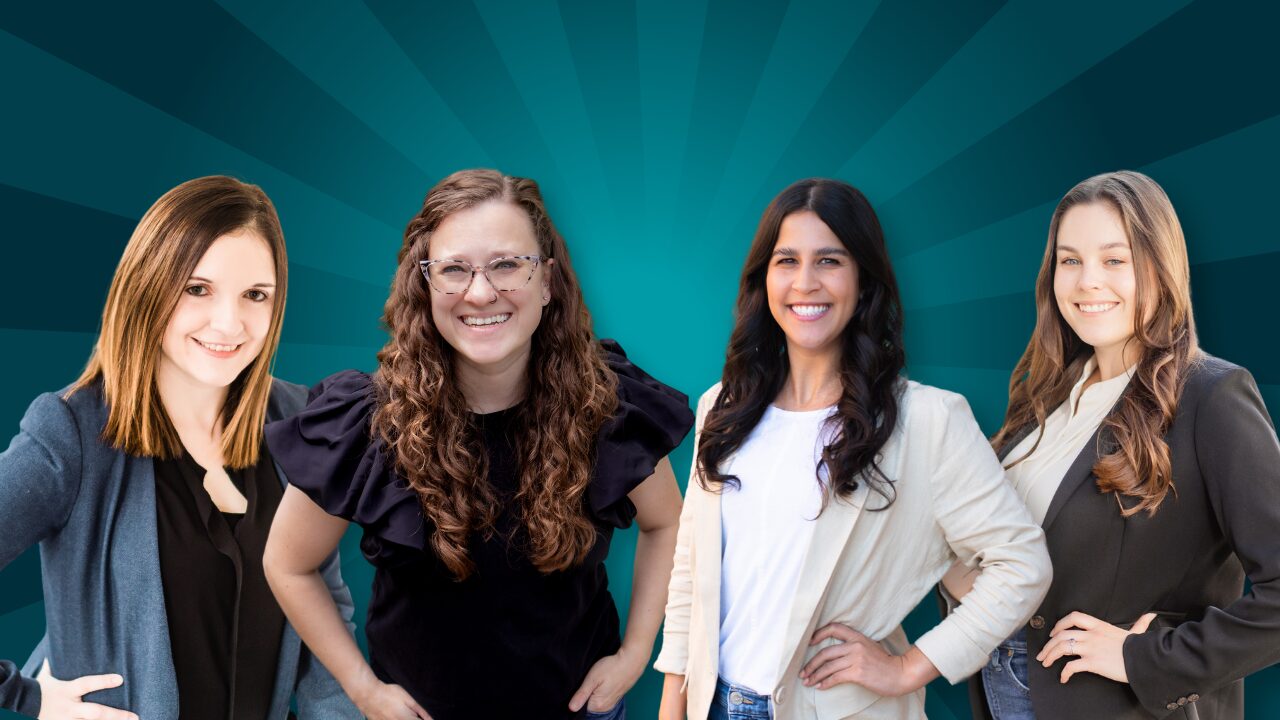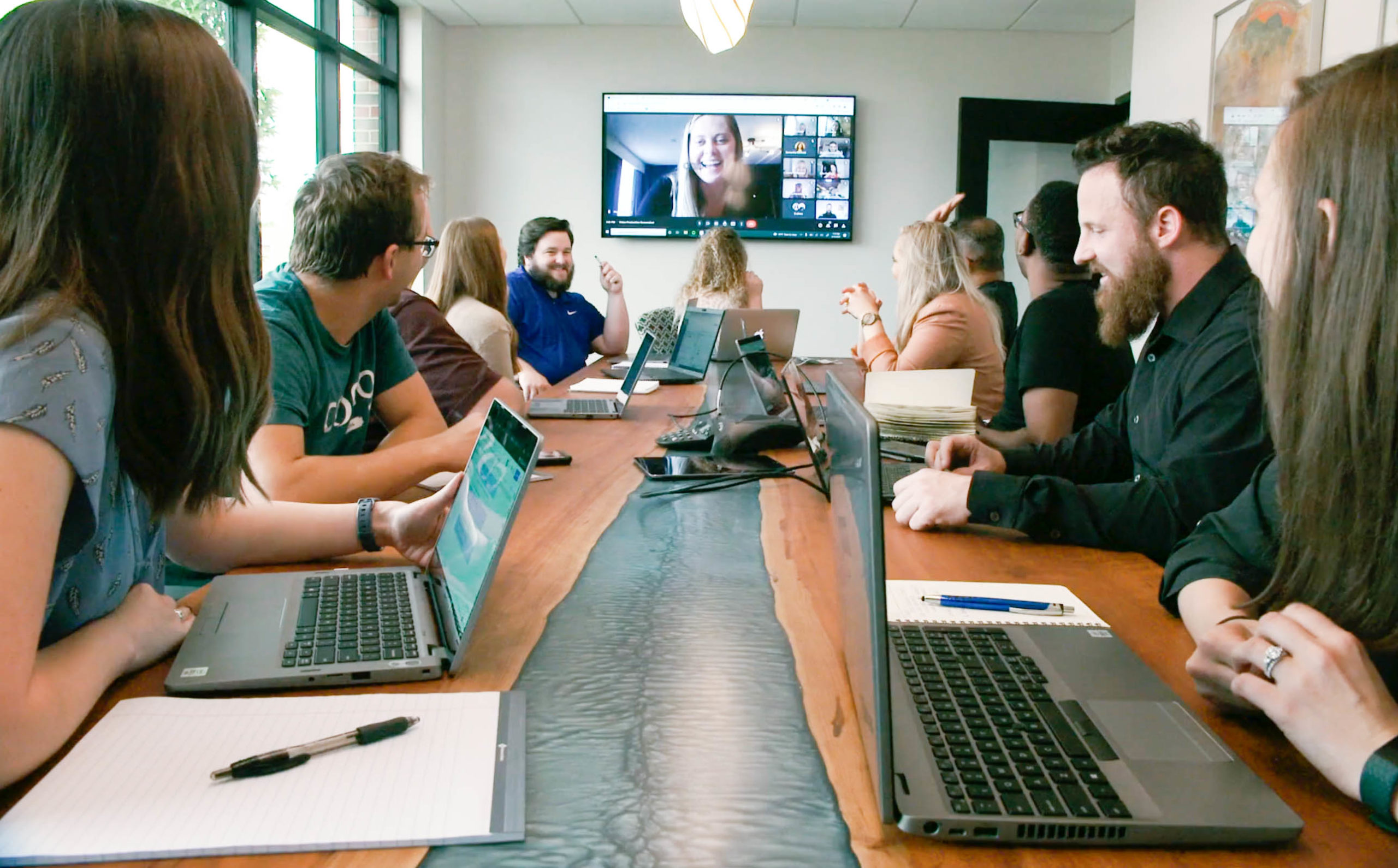This Q&A is an adaptation of a conversation between Coegi’s SVP of Marketing and Innovation, Ryan Green, and Peter Kennedy, the founder and president of influencer marketing company Tagger Media, which was recently acquired by Sprout Social. You can listen to the full episode of the podcast here.
Read on to hear Peter’s insights on the startup journey, and how he was able to adapt and build a successful company by focusing on customer needs. ______________________________________________________________________________________________
Ryan: I’m happy to be joined by the founder and CEO of Tagger Media, Pete Kennedy. Thanks for joining us today. I know we have some big news to talk about but would love to hear a little bit about your background, a quick elevator pitch, and resume of how you got here today.
Pete Kennedy: Thanks for having me here. I’ve been doing stuff for a long time, but I’ve always kind of started companies. That’s always been my thing. So I’ve started companies in the independent travel space back in the.com era, I started a medical device company, I started a water sports recreational business, and then obviously most recently started Tagger Media about eight years ago.
Ryan: So, I don’t wanna bury the lead here. Tagger just got acquired by Sprout Social, so congratulations. I’m sure that was quite the process. I’d love to hear, and I’m sure our audience would love to hear a little bit about what happens during an acquisition – how do you know that the company that’s acquiring you is the right fit? What was that process like?
Pete: I think selling a company is harder than actually starting a company. Crazy enough. When they say that the deal changes a hundred times a day, it really does. We talked to Sprout probably in December of 2022 for the first time. They reached out and said, hey, we’re kind of looking at this space. The real conversation happened [in the late spring of 2023], and they came out and we met with their CEO, their president, head of business development, and what we were looking for is an opportunity to win in this space.
Sprout has 30,000 customers and they’re all doing influencer marketing, ’cause it’s such a major part of the media mix and it’s obviously such an important part of the social space as well. What we were looking for is not only a company that we could scale with in a major way, but also the right cultural fit. This team is absolutely amazing. A lot of people are coming from Salesforce at that company, which is interesting. So they have this growth mentality and we have like maybe 10 sellers around the world. They have like 600. So it’s just this machine that we can jump into which is great, and that the entire team is so excited about Tagger and the ability to sell influencer to all their customers.
Ryan: Let’s step back a little bit to when you first were kind of coming up with the concept of Tagger. Most businesses, and you’ve started a number of them in various industries, we’re trying to find a problem to solve, right? So what was the problem that you were really looking at and where did you see your ability and your team’s ability to find a unique solution with Tagger?
Pete: It’s so interesting, that ideation stage. There’s like five stages of a startup, right? There’s ideation, there’s launch, there’s validation, there’s growth, and then there’s maturity or exit. Ideation stage is so much fun and there’s two ways that you can really do this: One is, which is the smart way to do it, identify a need, and then create solutions based on that need. Or you can create an idea that you think is interesting that might pertain to a market and then you build that. We actually did both of those things when we started Tagger.
We first started with this idea, and the idea was we wanted to disrupt the music industry. The music industry spends billions of dollars every year trying to find new artists and then promoting those artists. They do that by having boots on the ground all over the world. They have music bookers, they have doormen at venues who are seeing artists that they think are interesting, sound producers, all these different people. A lot of times they’re able to find these people very early on, but what we did is we said, well, let’s listen to everyone who matters in the music space, primarily on Twitter at the time. If everyone’s talking about “Ryan”, we could predict that “Ryan”’s gonna go somewhere. Not surprising. The most popular people early on are gonna go somewhere and it really had nothing to do with listening, likes, or views, which that market had been somewhat gamified.
So we created this platform where we just tracked all these people, but we had to create databases of all these musicians. We had to create databases of all these people who were talking about musicians. When we turned on the platform, we found, like Dua Lipa eight years ago, we found Billie Eilish eight years ago. I mean, we found all these amazing artists and go to the music industry, right? To validate this concept and they all said, what do you idiots know about music? I was like, nothing, but listen, we’re doing what you’re doing, but we’re doing a million times a day and they said, we’re not interested. (Now, fast forward, most of those music companies are clients, not to find artists, but to find influencers.)
Then I went to New York and I took 40 meetings in like a two week time period. And every time I was just pitching a new thing because we had this really interesting platform where we could understand audiences and their propensity, and we could find artists and all these things, but we didn’t know what we had and how it might apply to someone else’s business. Gary Vaynerchuk over at VaynerMedia, “Gary V”, his team heard what we were up to. We got a meeting and they heard about these crazy people running around New York meeting with everyone. Gary and his team were like, listen, we love your data, we love how you can understand audiences, but you need workflow around influencer marketing.
I asked the most important question: what is influencer marketing? Because I had absolutely no idea. And he said we have 30 people running campaigns for these big brands around the world and we’re really doing it on Excel spreadsheets. So if you can take our workflow, and by the way, they were hiring like a thousand influencers per campaign. Absolutely crazy and they said, if you can take our workflow and put it into a platform, we’ll be your first customer.
So I moved to New York for a month, and I lived with them to really understand what they actually needed. Instead of just making a spreadsheet on a platform, we wanted to take that workflow to figure out how we can make it easier. My development team’s in Poland, so I was going back and forth during that month. But by the end of the month, we were able to deliver them a product that worked for them.
Then it was really interesting. We then brought on a couple more clients. So we could have gone big and just raised money and hired all these people, but we didn’t, we slowly got another client and then another client. We focused on agencies because they had the biggest pain points. Just like I did with Vayner, we would get a new client and then I would go sit with them for weeks and just go in their office and I’d watch the bouncing ball: Like, you discover influencers, but why are you discovering those influencers? Is there a strategy? Who’s the strategy person saying we need to go do that? I’d go meet with that person and then we would have to go pay these people. I’m like, well, who pays these people? They’re like, oh, that’s, accounts payable. I go talk to them. I’m like, well, what are your pain points? So it was interesting, within like a year, I would walk into every agency or any brand, and I would know more about their business because I lived with all these different people to really understand what their needs were. That’s really how we did it. So I was able to identify a need based off of them telling us “this is what we need,” then really just going in and understanding everyone else’s needs so that you can build a unified platform that works for both brands and agencies.
Ryan: So, continuing on that, what are some of the ways that influencer and content marketing has changed and how have those changes evolved the way your platform has changed? You talked about having a modular concept for different workflows with different agencies in house brands, et cetera. But the marketplace has changed quite a bit too externally, so what things have you seen change over the years and how has your company reacted to those changes?
Pete: Yeah, definitely. There are multiple different ways it’s changed. First of all, what you get from influencer marketing has changed dramatically, right?
Back when I started this, it was very much a PR focus where it’s just like, let’s get these mentions out there. It kind of was replacing newspapers, magazines, and traditional PR because that had kind of died off and was really being replaced by influencer marketing. So it was very much awareness building KPIs. But that shift, that allowed money to flow into this space, is when agencies and brands started to look at this more as a paid media execution versus a PR execution, right? So we would go into agencies, especially PR agencies and train them about paid media.
Really, Vayner was the one who kind of got me on this. I mean, the Chris Aldi who was running their influencer business, he works for us now, but he started Gary’s paid media business. He’s like, no, this is paid media. This is what it is. So, even if you’re paying someone or you’re giving them a free product, you’re giving them something that costs you money, it’s paid, right? So I think that was a big change.
Then the platforms made it easier to report on these campaigns and measure an influencer campaign the same way we measure your other media mix. That was massive. For Procter and Gamble to put $200 million into this business, they need to be able to measure this the same way we measure their other media mix and that was vital.
Then a big shift that we’ve seen, especially over the last two years, is we’re not selling our platform to the influencer marketing team. We are now selling to the strategy team, the analytics team, the growth team, the new business teams at agencies, the technology team. All these different teams are using our platform really to get a holistic view of what’s happening socially, right? Social listening is important. Sprout has this amazing social listening platform and they’re listening to everyone in the world. What we do is we fine tune that down to the people who actually matter in terms of moving culture and those are influencers or creators. So having that view is helpful when you create that strategy.
Then I think the last thing that’s changed dramatically is just, AI and, well, I’m sure we’ll talk about this, but AI has just allowed us to really get a better understanding of what’s happening, being able to ingest billions of bits of data, consolidate that down to really specific things so you can be like, okay, yeah, It’s raining, but how do I make it rain harder? Or how do I make it stop raining? You need a platform like ours to do that.
Ryan: When we think about who, what, when, where, why and we’re talking about AI, I think AI has a lot of potential in the first four, and it’s that fifth one that seems to still be the human element of it. I think that’s almost true in your platform to some degree as well. I know you have why definitely covered there but that’s where the humans are spending most attention. Thinking about the, why the marketers behind the screen are interacting in that area, probably the most, if I were to summarize.
Pete: Well, I think that that is actually where AI comes in the most, to be honest with you. Let’s say that your client manufactures pickup trucks. Well, why are people buying your pickup truck versus someone else? How did those customers — marketers always say the customers actually position your brand. Marketers don’t position the brand, right? The consumer positions the brand, not marketers. So if we can take all the content from influencers about pickup trucks over the last eight months, it’s probably a million pieces of content. I can’t actually go through all that content to pull out nuggets, but I can put that through AI.
What AI will do is they will look at all of that content and they will pick out themes like within two seconds: Towing capabilities, technology, interior comfort, all these different benefits. Then you can then stack rank how your brand fits within each one of those based off of mentions. So if your pickup truck is mentioned the fewest times in terms of towing capability and the few times you were mentioned, you have the worst sentiment. Everyone’s saying your towing capabilities are horrible. You as a marketer was like, I think our towing capability’s amazing. Well, the market doesn’t and the people who move culture are actually saying the opposite of what you think.
So as a marketer, my strategy now on the why could be, oh, towing capabilities important for this industry because it’s the most talked about benefit with all the benefits of the pickup truck and we’re the worst. We probably need to create a campaign around our towing capabilities. Maybe we need to go back to the product team and say, listen, our towing capability sucks. We need to make it better. But I think AI allows you to filter all this data to understand what are the benefits and where do you stack up along those benefits?
Ryan: There’s obviously positive use that Tagger has with AI. Another thing that is a benefit to us is being able to sniff out fake followers and bots and things of that nature too. As AI becomes more sophisticated, as there are deeper fakes, things like that, is there a roadmap that Tagger has to help marketers at scale, identify where there’s nefarious content? Where we’re to avoid certain areas so that when we are looking at a plan with 2000 content creators on it, that we’re able to get the 200 out that may be coming from a negative place to make sure that we’re focusing our spend on what’s gonna move the needle and what matters?
Pete: Yeah, definitely. I mean, I think that fake followers is definitely something that is important but there’s two things that I think are even more important.
One, it’s content, right? That’s what we’re also seeing. Like I said, we’re selling into all these different departments, but that influencer content is being used across the entire customer journey. So for example, yeah, you’re gonna run a campaign and it’s gonna be an awareness building campaign, or maybe you’re trying to get conversion. But that customer journey, okay, they’re gonna see that influencer content and then they’re gonna start to see other social media ads about that brand. As you know, you have to see something multiple times before you go buy it. Well, what we know is that influencer content performs 300% better than branded content — on TikTok It’s like 3000% better. Why? Because it’s user generated content and does better than branded content. So now we’re seeing all this influencer content being used in paid media ads and then when you go onto these product pages on an e-commerce site, we’re seeing influencer content because again, it does better than branded content.
Then when we look at like cart abandonment emails, they’re AB testing that with influencer content, it’s actually converting better. So all the way along this customer journey, what you’re seeing is the influencer content. So yes, if your sole purpose is I just want to go out and buy an influencer, hire their audience essentially, and use that as my conversion, yes, fake followers is super important – but to me it’s like, let’s go find creators who make amazing content. Who creates content that’s authentic to themselves and authentic to their audiences because we, through our affinity data, we can really understand, like, do these audiences care about these things? Then let’s go take that content and use it across our entire e-commerce, our entire customer journey so that we’re getting the most outta that content. So fake followers are becoming a little less.
Then we’re also looking at more in terms of first party data and saying, well, do certain influencers convert better than other influencers do? When you start to be able to get more and more of that data, then it’s like, Ryan, you might have a hundred thousand followers and maybe 50% of them are fake, but you convert better in healthcare than anyone else. I don’t really care. Now, maybe what that means is instead of paying you based off of your a hundred thousand followers, yeah, I’m gonna pay you based off of you having 50,000 followers, but if I know that your conversion is so high, your followers don’t really matter because I’m paying you based off of what you’re gonna convert from me anyways. Again, not always. There’s multiple ways to think about that and I think fake followers are getting less and less relevant and more about, well, what can we do with this data and what’s our ROI on this campaign as a whole?
Ryan: Switching gears a little bit. Thinking about brands that really do well in the content marketing space, there’s obviously some brands that have built the almost entirety of their marketing function around influencers. I have some brands that don’t spend a dime on influencers and that are performing very well for themselves.
What are a couple examples that you see of brands that are using creators and influencers appropriately, making it part of their bigger ecosystem, but using that to really drive their brand growth, their conversion growth, their sales, all of it?
Pete: Companies that do it well are finding influencers that are authentic to their brand category, but whose audiences also care about those things. I think Lululemon’s done a really interesting job of this, because yes, they’re out there promoting all of their clothing, which is great. But they’re also partnering with mental health influencers as well because they know that that’s an important part. So when brands are partnering with influencers to, yes, talk about their products, but more importantly they’re talking about things that matter to their audience. Mental health is something that matters to their audience and they realize that.
So, back in the day, influencer content used to be polished and beautiful and just everything. And now it’s real because people are looking for social connection and they’re kind of rejecting this social comparison, you know? I think that companies like Lululemon have realized that. You’re gonna see every size model in their content, you’re gonna see them talking about issues, not about working out, but about mental health, things that matter to their consumer.
Then another company that I think did some interesting stuff was Behr Paint. They create paints and they have a bunch of different colors and they partnered with Emily Zugay and she’s this hilarious influencer that basically takes all of her paints and then she destroys the paint colors and renames them. So she might take like, green or something and call it like, cute green or way more clever than what I’m gonna come up with. But again, it’s kind of rejecting this high gloss social comparison and being real and hilarious. Brands are able now to kind of take the polish off of themselves, I think which is kind of interesting as well. Letting an influencer who, this is what she does, and that’s why she has a big audience, literally kind of like destroy the brand in a way because, you know, that that’s what people are looking for. So I think those are two pretty interesting examples. But, there’s hundreds of brands that are doing a great job of promoting their companies, but really bringing in social issues that matter to their audience, which is gonna be different from a brand next door whose audience is completely different.
Ryan: Very brave of Behr to strip off the gloss, so to speak. I think that leads into my next question: what changes do you predict will come in influencer marketing over the next couple of years? You’ve talked about the change from that curated content to a lot of more unfiltered content brands that are looking to partner with longer term ambassadors. Then just one-off activations with individual influencers as I’m sure you’re looking at how your company’s going to grow with the recent acquisition. Where do you see the marketplace going?
Pete: Yeah, again, I think that you’re gonna see more and more influencer content being used across the entire customer journey. I think that’s gonna be a big shift. Honestly, though, I think AI is gonna be a major addition to the influencer marketing process. Again, it’s not gonna replace anyone’s job, it’s just gonna allow them to be better at what they do.
So a couple examples would be, just sending out communications with creators, being able to analyze that creator’s content and their voice, and then writing emails to these creators. You have to ask these people to work with your brand and not every creator wants to work with your brand. So being able to create a voice that’s gonna resonate with the creator using AI and be able to do this across a hundred influencers at the same time, is gonna make you way more efficient in your job. So that’s one quick example.
Another example is just to take all of your content as a brand and look across all these creators instantaneously to find that perfect match of tone and thought and content in order to find those right creators. I also love this idea. AI does a great job of summarizing content. What it doesn’t do a good job of yet is to say, hey, here’s what’s happening in my industry. I have a hundred thousand dollars. How should I spend that? It can’t do that yet. I think in the future it might be able to, because again, it can just summarize data pretty well, but it can’t tell you how to spend your money.
Ryan: So can I surmise that there may be some changes or enhancements to your platform that artificial intelligence is gonna be able to fuel?
Pete: Oh, we’re already doing it right now. So, I’ve already seen a lot of this. Like I’ve seen all this stuff already on our platform. We’re still developing it and we’ll be launching it over the next month or two, but yeah, it’s just gonna make your life so much easier.
Ryan: Coegi’s going to be a beta tester for that.
Pete: A hundred percent. I mean, there are certain agencies that are thought leaders and you guys are ahead of the curve with most of this stuff. So obviously we always look for partnerships with you guys to help us drive that product development. That’s really where our product development happens, is with you guys, it’s like, what do you guys need? What are you guys thinking about how the market’s going and how can we build based on those needs?
Ryan: Well, we’re excited to see what that looks like both, with the quick wins and those longer ones that’s fresh off the press. I’m really excited to continue to partner with you.
Pete: Amazing. Thanks, Ryan.
______________________________________________________________________________________________
Click here to follow The Loop Marketing Podcast for more marketing insights.





